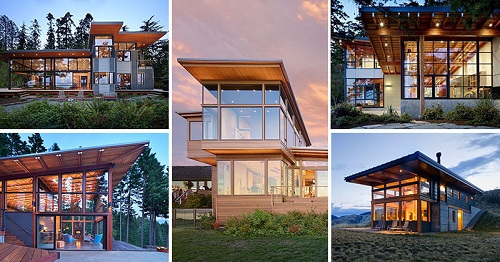
Mortgage Dove
Buying An Investment Property in Real Estate
Buying property is viewed by most people as an investment in the future. Over time, property values increase, so if you own a home, you're likely to be able to sell it for a profit. Making money from your property is possible if you maximize its value since real estate investments can be profitable. An investment property can add income streams, diversify your portfolio, and help you make money.
What Is An Investment Property?
An investment property is a real estate property purchased to earn a return on the investment through rental income, resale of the property, or both. Investing in property can be done by an individual, by a group, or by a corporation.
Investment property can be a long-term or short-term endeavor. In the latter case, investors often flip properties, where they buy, remodel, and sell them at a profit after a short period.
Additionally, "investment property" refers to other assets an investor purchases in the hopes of gaining value over time, such as art, securities, land, or other collectibles.
An Overview Of Investment Properties
The term investment property refers to a property that is not used as a primary residence. It generates income through dividends, interest, rent, or even royalties that are not part of the property owner's regular business. It is also important to consider how investment property is used when determining its value.
Studies are sometimes conducted by investors in determining how to utilize a property most effectively and profitably. In other words, this is the property's highest and best use. When an investment property is zoned for both commercial and residential use, the investor weighs the pros and cons until they determine the highest potential return. The property is then used in that way.
Investors often refer to investment properties as second homes. However, the two are not necessarily synonymous. A family might purchase a cottage or other vacation property for themselves, or a person with a primary home in the city might purchase a second property in the country for weekends. In such cases, the second property is for personal use and is not intended as an income property.
What Are The Different Types Of Investment Properties?
Investment properties come in many forms. To find out what will work best for you, consider how you would like to use and generate income from the property.
Second home
Investing in a second home will allow you to utilize one of your current homes as an investment. You can rent the home or use it for a short-term stay on platforms like Airbnb. Additionally, the home may appreciate over time and can be sold at a profit.
Duplexes
Investing in duplexes is popular because they allow the owner to rent out one unit while living in the other. You can also rent both units of a duplex to generate more income.
Accessory dwelling units
Accessory dwelling units , also known as ADUs, are secondary dwellings attached to the primary residence: a detached guesthouse, a basement apartment, a converted garage, or an attached wing. It is possible to rent these out for income, but they cannot be sold separately from the main house.
Apartment buildings and multi-family dwellings
Multi-unit apartment buildings are often good investments because they can be rented out to tenants. The owner can live in one of the apartments on the property.
House hacking
Traditionally, house hacking involves renting out a part of your home for income. A basement could be converted into an apartment, or a room could be rented out either temporarily or permanently.
Flipping homes
You can generate revenue by flipping houses if you have the capability and know-how to do it. Flipping a home involves purchasing a property, making improvements, and then "flipping" it (quickly, within a year or two) by selling it for more money than you invested. Although it is faster than waiting for a property's value to increase over time, it carries more risk.
Land
Investment properties can be purchased as raw land instead of buildings. There is always a demand for land. Eventually, you might be able to sell a plot to someone looking to build, whether residential or commercial.
Commercial buildings
Investment properties are not limited to residential properties. Additionally, you can invest in commercial properties, which you can rent to businesses for offices, shops, and restaurants.
3 Signs You're Prepared For An Investment Property
The buying process for an investment property differs from that for a primary residence. Make sure you meet the following qualifications before investing in property.
1. Your finances are stable.
Investment properties require a much higher financial stability level than primary homes, especially if you plan to rent them out. The down payment required by most mortgage lenders for investment properties is usually 15%, whereas it is not usually required when purchasing your first home. Investment property owners who move tenants into their homes must also pass an inspection in many states, along with a higher down payment.
Your budget should cover both the initial home purchase costs (such as your down payment, inspection, and closing costs) and ongoing maintenance and repairs. The owner of a rental property must make essential repairs on time, including costly emergency plumbing and HVAC repairs. In some states, tenants can withhold rent payments if you fail to fix broken home utilities. You should budget more money for regular and emergency home repairs than you think you need.
2. There is a good Return on Investment (ROI).
The savviest investors calculate their approximate return on investment (ROI) rates before purchasing an investment property in today's market. Follow these steps to calculate your return on investment for potential property investments.
Estimate your annual rental income. Find similar properties that are currently available for rent. Then multiply that rent price by 12 to get a year's worth of income from the property you are considering.
Calculate your net operating income. Calculate your net operating income after estimating your potential rental income. Net operating income is equal to your annual rental estimate minus your annual operating expenses. Operating expenses refer to the total cost of maintaining your property each year. Among the expenses are insurance, property taxes, maintenance, and homeowners association fees. Net operating expenses do not include mortgages or interest. Your net operating income is determined by subtracting your operating expenses from your annual rent estimation.
Identify your ROI. Divide your net operating income by mortgage value to find your total return on investment (ROI). In a solid area with reliable tenants, a 3% ROI is great if you buy a property. In an area known for short-term tenants, a 3% ROI may not be worth your effort.
3. You have time to deal with it.
Management of investment properties still takes a lot of time. Aside from advertising your property, you will have to interview potential tenants, run background checks on them, ensure tenants pay their rent on time, maintain the property and make repairs when something breaks down. Furthermore, you must work around the tenants' "right to privacy," which generally prohibits you from dropping by unannounced without giving them 24-hour notice.
The Bottom Line: Start Owning Investment Properties
Real estate investing can bring you a lot of benefits. Are you ready to invest? If yes, now is the time to begin researching properties in your area. Another way to decide whether you're ready is to assess your financial stability and return on investment for a particular property. In addition, you need to determine whether you have time to manage one. It's also important to consider the housing market, property taxes, and whether you'd like to hire a property manager.
When you've carefully considered whether you're ready to buy an investment property, the next step is to secure financing. Your first investment property is just a few steps away when you get approved with Mortgage Dove.
"Mortgage Dove makes home financing convenient for every American. You can count on us to provide a home buying experience tailored to your personal needs and financial situation. We strive to give you the peace of mind that your home financing goals can be achieved.”

Mortgage®
www.mortgagedove.com



